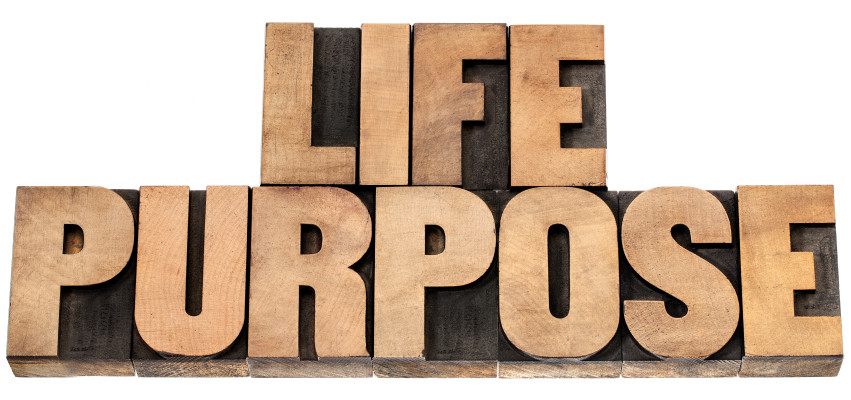When we reach the age of adolescence, many of us start to think about the purpose of our lives. Initially we expect to find some sort of global or common theme that brings a sense of purpose to us, but speaking with others about it, we quickly realize that this is not the case. Life is what you make it. The challenge in finding your life’s purpose therefore lies in the fact that it is unique. No two people draw meaning from the exact same things.
Meaning in life is important. Research studies consistently show that people who report a greater sense of meaning are happier [1], healthier [2], and more satisfied with life [3]. But what exactly is meaning? The Merriam Webster Dictionary defines it as the “idea” behind a word, phrase, or a work of art, and defines purpose as “something set up as an object or end to be attained: an intention”.
A purposeful and meaningful life, is therefore first and foremost an intentional life, a life whose goals are derived from a primary strategy, and where daily steps are taken in the light of a clear lifelong aim, a “big idea”.
What is the big idea then? What consistent intentions drive you? Clearly, the only person who can answer these questions is you, but more than often, it may feel like you simply don’t know. And what if you get it wrong? If the key lies far in your future, wouldn’t it be too late when you find out?
The good news is that the key may actually be in the present and in the past. A recent study by Steger and Kashdan [4] demonstrates that people experience a varying sense of meaning in life throughout their days. One’s sense of meaning is unstable, leading to the possible conclusion that some life experiences evoke a powerful sense of purpose while others don’t. Instead of thinking of a meaningful future purpose, it could be useful to start by looking for meaningful experiences, and then to check the common attributes that characterize them. This approach also ties with the work of positive psychologist Tal Ben Shahar’s, who defines happiness as the sum of meaning (a future benefit) and pleasure (the present positive emotions from pursuing meaningful goals) [5]. Instead of conjecturing future meaning, start by looking at present and past experiences where you felt lit-up, motivated, excited, and engaged. Think of events and times in past years, and in more recent weeks and days, where you felt a sense of meaning, pride, and motivation: How would you describe them?
– Who were you with?
– What tasks were you performing, and for what purpose or goal?
– What characterized these goals?
– What was the level of challenge you faced?
– What was your sensory experience – what did you see, hear, smell, touch, and taste?
– What were the reasons you chose to call these experiences meaningful?
When you ask these questions, what are the common threads that surface?
A few years ago, I went through this exercise myself. I had just come back from Ride of Your Life, a 6,000 miles solo motorcycle ride I embarked on when I turned forty [6], [7]. The Ride allowed me to widen the range of experiences I could look back on, and I found that there were four types of meaningful experiences for me:
– Being with my close family (starting with my wedding and the birth of my first child all the way to emptying the dishwasher with my son last week)
– Traveling solo, spending time outdoors by myself (from walking to the grocery store to riding across the country)
– Interacting with people and learning from them
– Spending solitary time in contemplation, reading, and writing (as I am doing now researching the literature to write this post)
The consequences of these simple insights were dramatic: I ended up selling my company, restructured my work so I can spend more daily time with my family, moved to a community where there’s more random interaction with people when shopping, dining etc, and started to write my first book. I still live a very normative life (some may even call it boring), but the dosage of meaningful experiences has significantly increased, and with it my sense of purpose. At any given day, if I need to be reminded of my life’s purpose, all I need to do is look around. I live for my family, for the wisdom of the people I meet (or whose written-work I read), and for attempting to help others make their lives more meaningful, through my writing. Like this little post.
Your life’s purpose may be a jigsaw puzzle whose pieces are hiding in your present and past experiences. If you find enough pieces, you may be able to put them together and discover a picture that was not there before. All you have to do today is to start looking.


